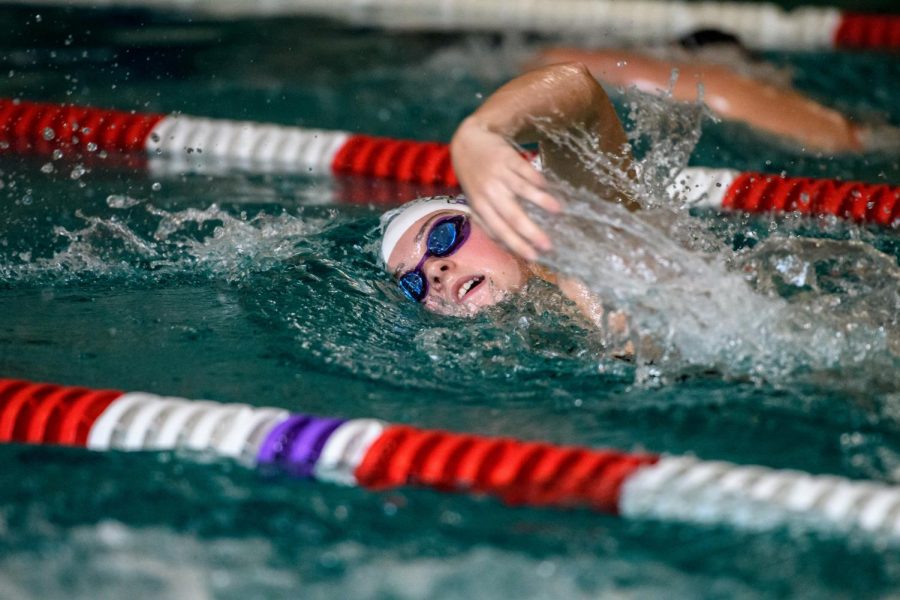Sitting here watching a little league baseball game, I can’t help but wonder what is circulating through the heads of the loud, rude and, in my opinion, confused parents who feel their kids will achieve ultimate sports success if only they can ridicule the officials and shout instructions to their children from 100 feet away. It seems most parents these days have taken way too much of an interest in the Western culture’s belief that individualistic success is of above all importance. Why these sorts of parents do not understand the uselessness and possibly traumatic effects of their actions, I will never know.
Some of the rudest comments I have ever heard from one human being to another have come from a parent of a young child and was directed to a sports official of one kind or another. Officials, whether it is a referee of basketball or an umpire of baseball, do not become inhuman when they put on the black-and-white striped shirt that unfortunately, is more of a bull’s eye than a piece of clothing. These parents bank on the idea that it is OK to ridicule the men and women that make every sport possible. Without them, their child’s beloved sport would be no more; without officials, who would call the games? The parents? I think not; they would never last. Instead of being forever grateful of these people, they mock every call and every decision that is not in their favor. The point and the goal to a competitive game is to have two teams fighting to be the best, making the game close and exciting and triggering passion within the players. But it seems these parents dream at night for all of their children’s games to be a one-sided stomping event and, of course, only their team ever getting the “W.” Why can’t a game just be a game? After all, it is only a game.
The most hilarious piece of this sad, but true, story are the many examples of “coaching” provided daily by these kinds of parents. They all believe they could coach the New York Yankees, or God forbid, my struggling Seattle Mariners. First off, these parents, I can only guess, are seemingly too old to remember that children do not listen to chatter from the sidelines. Maybe the younger bunch of kids will stare longingly at their parents behind the fence simply for their begging to go home, but not for coaching advice! The majority of kids will only ignore random calls from the stands. And second, if they do listen, does it help? Does the continuous criticism and demands of these parents help their children who are only trying to concentrate and have fun during a sporting event? What wisdom is so important that it cannot wait till after the game? This conversation has come up many times in my past playing sports, talking with my friends and teammates about this very subject, and I have heard too many times how traumatic these experiences had been on my then-young teammates. I myself was insanely lucky to have two quiet and supportive parents.
Support and understanding are the two most important qualities of a good parent in sports, or just life in general. Children do not need coaches at home; they do not need best friends at home; children need parents who will teach them about life and guide them through anything they need help with. I am afraid that the actions of these kinds of parents will develop certain complexes in the next generation of children as they become adults, as well as teach them inappropriate sporting activity behavior which, for all intents and purposes, transposes into the real world almost indefinitely. For arguments sake, the most friendly, respectful, and responsible people are most likely going to be those people who have a great sense of sportsmanship. Sports shape children like nothing else; this shaping can be excellent for a childhood because a child can use what he or she learned from their sporting activities, like respect, hard work, and passion to do good in the world as they mature into adulthood. But it can also be deleterious to a childhood, and to the subsequent adulthood. For example, the children who unfortunately learn, by accident, the wrong things from sports like the disrespect of others, cheating, and selfishness.
Only a very small percentage of children will ever grow up to play any sport professionally; with that said, shouldn’t academics be praised by parents a bit more than sports? Sports are great for children, my childhood and young adulthood would be nothing without them, but I still knew that I could make a bigger difference in the world, not squatting behind home plate.
Above all, humans are humans, and they should be treated as such despite opinion, profession, or other various differences.
Hannah McCluskey
Columnist Hannah McCluskey can be reached at [email protected]


Zach Bowman • May 23, 2010 at 10:24 pm
Very well written article. Hits the argument on the nose. I really enjoy her style.